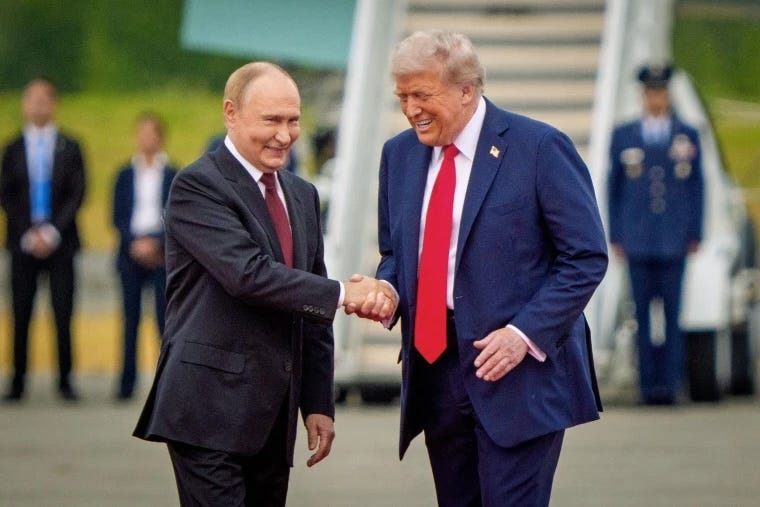After the Alaska Summit: Global Energy Affairs in a Trump-Putin Rapprochement
The Trump–Putin summit could be a geopolitical game-changer
In February 2025, senior US and Russian officials met in Saudi Arabia to discuss what was unthinkable during the previous US administration: normalisation of relations, economic cooperation and a potential roadmap to end the Ukraine war. That improbable dialogue set the stage for the historic US–Russia summit last week in Anchorage, Alaska, where President Trump welcomed President Putin with the red-carpet treatment. Whatever one thinks of Trump’s mercurial style, the Anchorage meeting may yet prove to be a geopolitical turning point, reshaping not only the outlook for NATO’s proxy war in Ukraine but also the architecture of global energy.
For the first time in many years, the prospect of Washington and Moscow resuming normal diplomatic and economic relations is within reach. And with it comes the tantalising possibility of an energy renaissance: a world no longer constrained by anti-Russia sanctions or by the West’s ideological war on fossil fuels.
From Strident Rhetoric to Realpolitik
Until Anchorage, the chorus from Brussels and Kyiv was uncompromising. European leaders and President Volodymyr Zelenskyy demanded that Russia return to 1991 borders, pay reparations and grant NATO membership to Ukraine. But as Russian advances on the battlefront eroded the Ukrainian military’s morale and capacity – Ukrainian public support for the war effort has collapsed, according to a widely cited Gallup poll – those maximalist demands are delusional.




